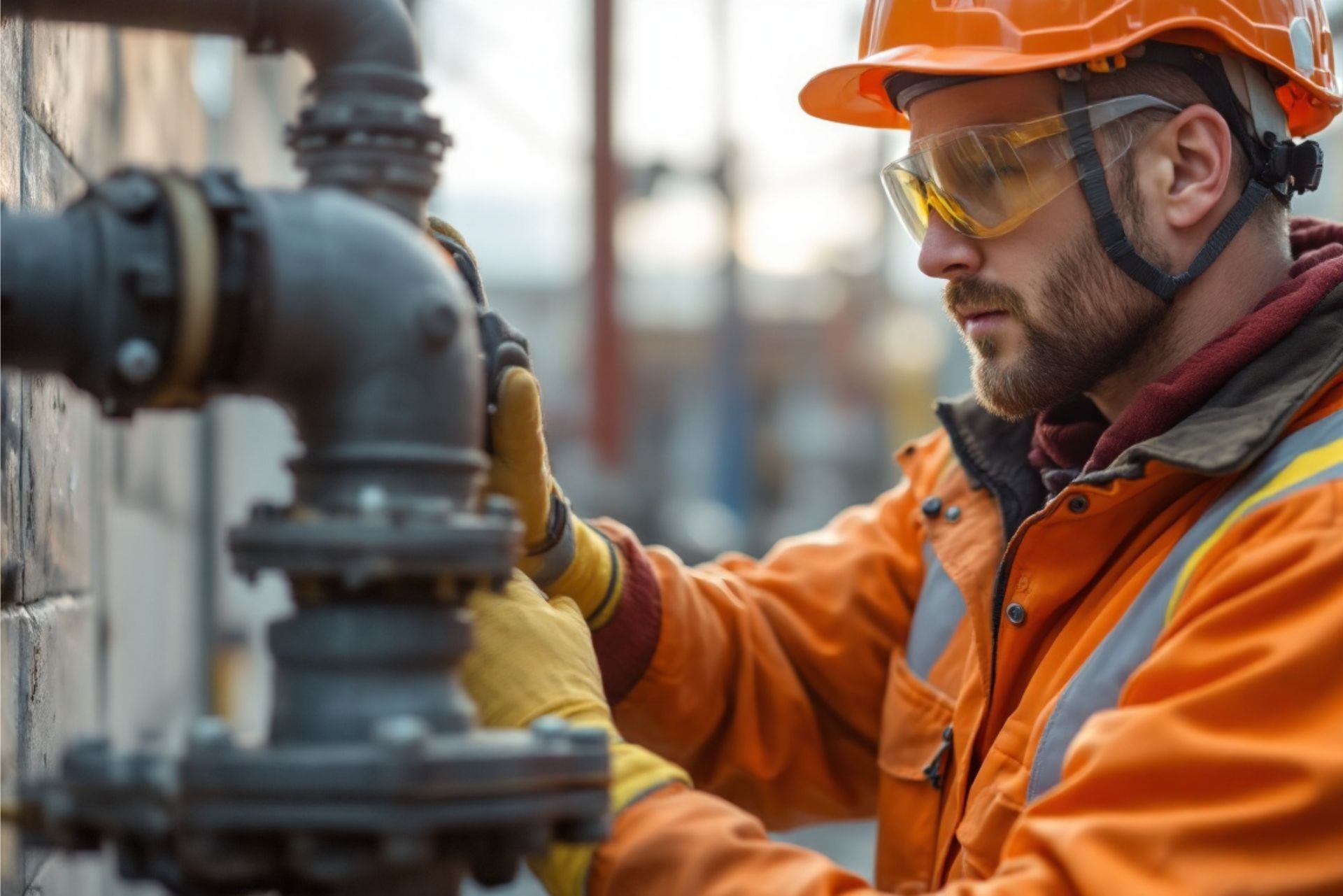Backflow Prevention Technician Insurance
See How We're Different
or call us: 888-988-2347
Index
Understanding Backflow Prevention
Why Insurance is Essential for Backflow Prevention Technicians
Types of Insurance for Backflow Prevention Technicians
Costs of Backflow Prevention Technician Insurance
How to Choose the Right Insurance Provider
Claims Process for Backflow Prevention Technicians
Contact Us
Phone
Location
Simi Valley, CA 93065
The Woodlands, TX 77382
Katy, TX 77494
Backflow prevention technicians play a crucial role in maintaining the safety and integrity of water systems. They ensure that potable water supplies are protected from contamination due to backflow, which can occur when water flows in the opposite direction. However, like any profession, the work of a backflow prevention technician comes with its own set of risks and liabilities. This is where insurance becomes essential. This article aims to provide a comprehensive overview of backflow prevention technician insurance, covering its importance, types, costs, and more.
Understanding Backflow Prevention
Before delving into the specifics of insurance, it is important to understand the role of backflow prevention technicians. These professionals are responsible for installing, testing, and maintaining backflow prevention devices. Their work is vital in ensuring that drinking water remains uncontaminated, which is essential for public health. Regular maintenance and testing of these devices not only comply with legal regulations but also foster community trust in the safety of their water supply. Technicians often work closely with local health departments and water utilities to ensure that all standards are met and that the community is well-informed about the importance of backflow prevention.
The Importance of Backflow Prevention
Backflow occurs when there is a change in pressure within a water system, causing water to flow backward into the supply. This can introduce harmful contaminants into the drinking water supply, posing serious health risks. Backflow prevention devices are installed to prevent this from happening, and technicians are trained to ensure these devices function correctly. The implications of backflow can be severe, ranging from minor health issues to widespread outbreaks of waterborne diseases. Therefore, the role of these technicians extends beyond mere installation; they are crucial in safeguarding public health and ensuring compliance with environmental regulations. Regular training and updates on new technologies also play a significant role in their effectiveness, as advancements in backflow prevention systems continue to evolve.
Common Risks Faced by Technicians
Backflow prevention technicians face various risks in their line of work. These may include exposure to hazardous materials, potential injuries from equipment, and liability for any mistakes made during installation or testing. Understanding these risks is crucial for determining the appropriate insurance coverage. Additionally, technicians often work in diverse environments, from residential properties to industrial sites, each presenting unique challenges and hazards. For instance, working in confined spaces or near heavy machinery can increase the likelihood of accidents. Moreover, the psychological pressure of ensuring that the water supply remains safe can be significant, as any oversight could lead to dire consequences for public health. Therefore, comprehensive training and adequate insurance coverage are not just beneficial but essential for these professionals to carry out their duties safely and effectively.

Why Insurance is Essential for Backflow Prevention Technicians
Insurance is not just a safety net; it is a vital component of running a successful backflow prevention business. Without adequate insurance coverage, technicians may find themselves financially vulnerable in the event of an accident or lawsuit.
Liability Protection
One of the primary reasons for obtaining insurance is liability protection. If a technician is accused of negligence or if their work results in contamination, they could be held liable for damages. Liability insurance helps cover legal fees and settlements, providing peace of mind for technicians as they perform their duties. This coverage is especially important in the backflow prevention industry, where the stakes can be high; a single incident could not only damage a technician's reputation but also lead to significant financial repercussions.
Protection Against Property Damage
Accidental damage to a client's property can occur during installation or maintenance work. Insurance can help cover the costs associated with repairing or replacing damaged property, ensuring that technicians do not have to bear the financial burden themselves. Furthermore, having this protection can enhance a technician's credibility and trustworthiness in the eyes of potential clients. When clients know that their technician is insured, they are more likely to feel secure in hiring them, knowing that any mishaps will be taken care of without hassle.
Employee Coverage
In addition to protecting against liability and property damage, insurance is crucial for safeguarding employees who may be working under a backflow prevention technician. Worker’s compensation insurance, for instance, provides coverage for medical expenses and lost wages in case of work-related injuries. This not only fulfills legal obligations but also fosters a supportive work environment. Technicians who invest in their employees' well-being often see improved morale and productivity, which can lead to better service and customer satisfaction.
Compliance with Regulations
Many states and municipalities require backflow prevention technicians to carry specific types of insurance to operate legally. This compliance not only protects the technician but also ensures that the public is safeguarded from potential health hazards associated with backflow issues. By maintaining the necessary insurance, technicians demonstrate their commitment to professionalism and adherence to industry standards, which can be a significant differentiator in a competitive market. Moreover, being insured can open doors to more lucrative contracts, as many commercial clients will only work with insured professionals, further emphasizing the importance of having comprehensive coverage.
Types of Insurance for Backflow Prevention Technicians
There are several types of insurance that backflow prevention technicians should consider. Each type serves a different purpose and offers various levels of protection.
General Liability Insurance
General liability insurance is a fundamental coverage for any contractor, including backflow prevention technicians. This insurance protects against claims of bodily injury, property damage, and personal injury that may arise during the course of work. It is often the first line of defense in protecting a technician's business. For instance, if a technician accidentally damages a client's property while performing maintenance on a backflow prevention device, general liability insurance can help cover the repair costs, thereby safeguarding the technician's financial stability.
Professional Liability Insurance
Professional liability insurance, also known as errors and omissions insurance, is particularly important for technicians who provide professional services. This type of insurance protects against claims of negligence or failure to perform professional duties. If a technician's work leads to a client suffering a financial loss, this insurance can help cover legal costs and settlements. Additionally, it can also provide peace of mind for technicians, allowing them to focus on their work without the constant worry of potential lawsuits stemming from their professional advice or actions.
Workers' Compensation Insurance
For technicians who employ others, workers' compensation insurance is essential. This insurance covers medical expenses and lost wages for employees who are injured on the job. It is often a legal requirement in many states and helps protect both the employee and the employer. Furthermore, having workers' compensation insurance can enhance a company’s reputation, showcasing a commitment to employee safety and well-being. This not only fosters a positive work environment but can also help in attracting skilled technicians who prioritize their safety and job security.
Commercial Auto Insurance
For backflow prevention technicians who use vehicles for their work, commercial auto insurance is another crucial coverage to consider. This insurance protects against accidents that occur while driving for business purposes, covering damages to vehicles and medical expenses resulting from accidents. Unlike personal auto insurance, commercial auto insurance is tailored to the unique risks associated with business use, ensuring that technicians are adequately protected while transporting equipment and traveling to job sites. In addition, it can also cover liability claims if a technician is found at fault in an accident while on duty, further shielding their business from financial repercussions.
Equipment Insurance
Equipment insurance is vital for backflow prevention technicians who rely on specialized tools and machinery to perform their jobs. This insurance covers the loss, theft, or damage of essential equipment, ensuring that technicians can quickly replace or repair their tools without incurring significant out-of-pocket expenses. Given the often high cost of backflow prevention equipment, having this coverage can be a game-changer for a technician's operational efficiency. Moreover, it allows technicians to maintain their workflow and meet client demands without prolonged interruptions due to equipment issues.
Costs of Backflow Prevention Technician Insurance
The cost of insurance for backflow prevention technicians can vary widely based on several factors. Understanding these factors can help technicians budget for their insurance needs effectively.
Factors Influencing Insurance Costs
Several factors can influence the cost of insurance premiums for backflow prevention technicians. These include the size of the business, the number of employees, the level of coverage required, and the technician's claims history. Additionally, the specific risks associated with backflow prevention work can also impact costs. For instance, technicians who work in areas with older plumbing systems may face higher premiums due to the increased likelihood of system failures or contamination incidents. Moreover, the type of clients serviced—residential versus commercial—can also play a significant role in determining insurance costs, as commercial projects often involve more complex systems and higher liability risks.
Average Premiums
On average, backflow prevention technicians can expect to pay anywhere from a few hundred to several thousand dollars annually for insurance. General liability insurance cost vary significantly per year, as well as professionally liability insurance. Workers' compensation insurance costs can vary significantly based on the state and the number of employees. It's also important to consider that many insurers offer discounts for technicians who complete specialized training or certification programs, which can not only enhance their skills but also lead to lower premiums. Additionally, maintaining a good safety record and having a comprehensive risk management plan in place can further reduce insurance costs, making it essential for technicians to prioritize safety in their daily operations.

How to Choose the Right Insurance Provider
Selecting the right insurance provider is crucial for backflow prevention technicians. A good provider will not only offer competitive rates but will also understand the specific needs and risks associated with the profession.
Researching Insurance Companies
Start by researching insurance companies that specialize in coverage for contractors and technicians. Look for providers with a solid reputation and positive customer reviews. Online forums and industry associations can also provide valuable insights into which companies are well-regarded. Additionally, consider checking the financial stability of these companies through ratings from agencies like A.M. Best or Standard & Poor's. A financially stable insurer is more likely to be able to pay out claims when needed, which is a critical factor for peace of mind in your business operations.
Comparing Quotes
Once a list of potential providers is compiled, obtaining quotes is the next step. Comparing quotes from different companies can help technicians find the best coverage at the most competitive price. Be sure to review the details of each policy, including coverage limits and exclusions. It's also wise to inquire about any discounts that may be available, such as bundling multiple policies or having a clean claims history. Understanding the nuances of each quote can often reveal hidden costs or benefits that may not be immediately apparent, so take the time to analyze them thoroughly.
Seeking Expert Advice
Consulting with an insurance broker who specializes in contractor insurance can be beneficial. Brokers can provide tailored advice based on the specific needs of backflow prevention technicians and help navigate the complexities of insurance policies. They often have access to a wider range of products and can negotiate better terms on your behalf. Moreover, an experienced broker can help you understand the implications of various policy options, ensuring you choose coverage that not only meets legal requirements but also protects your business from unforeseen liabilities. Their expertise can be invaluable in helping you make informed decisions that align with your long-term professional goals.
Claims Process for Backflow Prevention Technicians
Understanding the claims process is essential for backflow prevention technicians. Knowing how to file a claim and what to expect can alleviate stress in the event of an incident. This knowledge not only empowers technicians but also ensures that they are prepared to handle unexpected situations effectively, minimizing disruptions to their work and maintaining the trust of their clients.
Steps to File a Claim
In the event of an incident that may lead to a claim, technicians should follow a set process. First, it is important to document the incident thoroughly, including photographs, witness statements, and any relevant details. This documentation serves as crucial evidence that supports the claim and can significantly influence the outcome. Next, contact the insurance provider to report the claim and provide the necessary documentation. The insurance company will then guide the technician through the claims process. It is advisable to keep a record of all communications with the insurer, including dates, times, and the names of representatives spoken to, as this can be helpful if any disputes arise during the process.
What to Expect During the Claims Process
The claims process can vary in duration, depending on the complexity of the claim and the insurance provider's policies. Technicians should be prepared for potential investigations and may need to provide additional information as requested. Clear communication with the insurance company can help expedite the process. Additionally, technicians should familiarize themselves with their policy's specific terms and conditions, as this knowledge can aid in understanding what is covered and what may be excluded. Being proactive in addressing any concerns or questions with the insurer can also lead to a smoother claims experience, ensuring that technicians remain focused on their primary responsibilities while the claim is being processed.
Best Practices for Backflow Prevention Technicians
Beyond having the right insurance, backflow prevention technicians can adopt best practices to minimize risks and enhance their professionalism.
Regular Training and Certification
Staying updated with the latest techniques and regulations is vital for backflow prevention technicians. Regular training and certification can help technicians perform their jobs safely and effectively, reducing the likelihood of errors that could lead to claims.
Maintaining Accurate Records
Keeping detailed records of work performed, including testing and maintenance logs, can be invaluable. These records not only help in demonstrating compliance with regulations but can also serve as evidence in the event of a claim.
Conclusion
Insurance is a critical aspect of the backflow prevention technician profession. By understanding the types of insurance available, the costs involved, and the claims process, technicians can better protect themselves and their businesses. Additionally, adopting best practices can further minimize risks and enhance their professional standing in the industry.
Ultimately, investing in the right insurance coverage is not just about compliance; it is about ensuring peace of mind while focusing on the important work of safeguarding public health through effective backflow prevention.
Types of Plumber Insurance We Provide
Areas we serve




